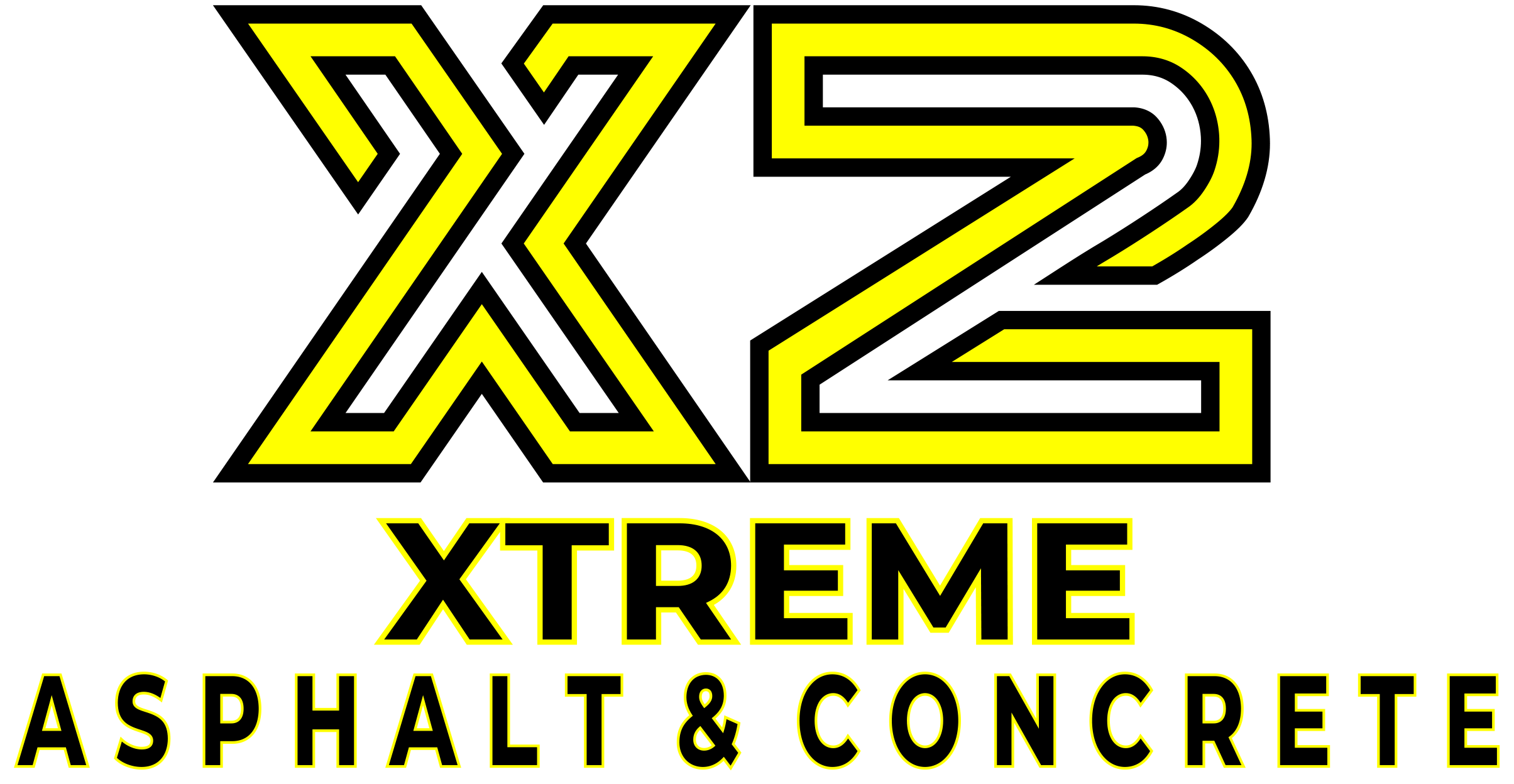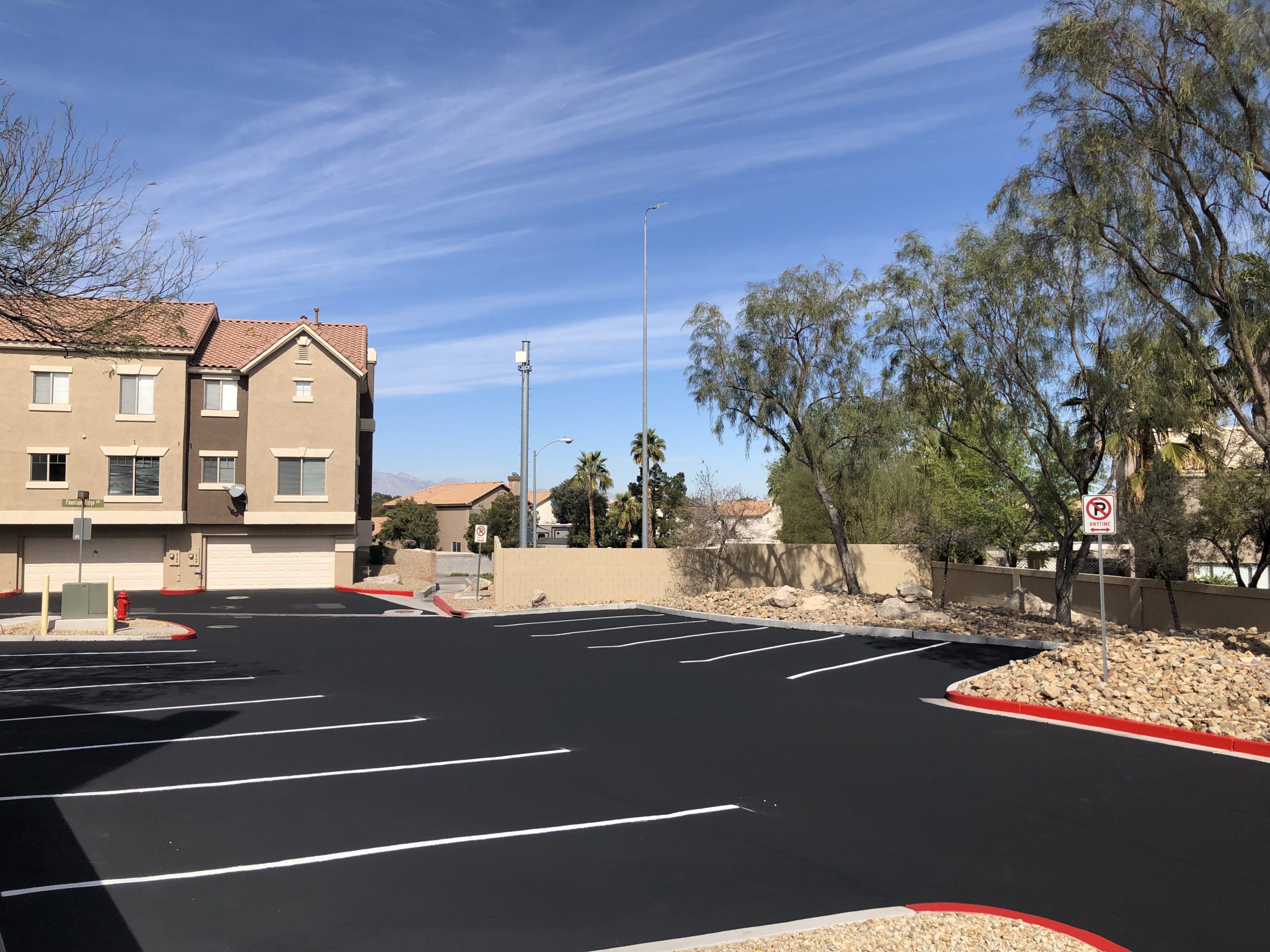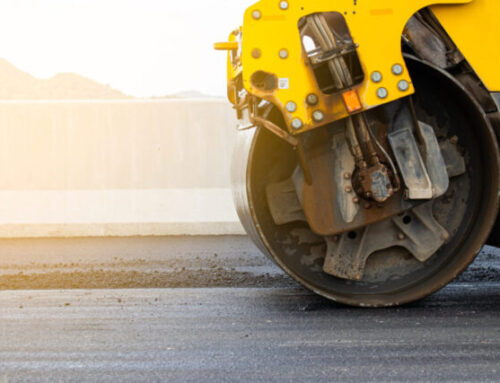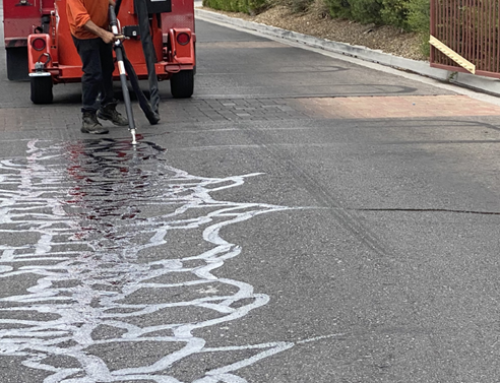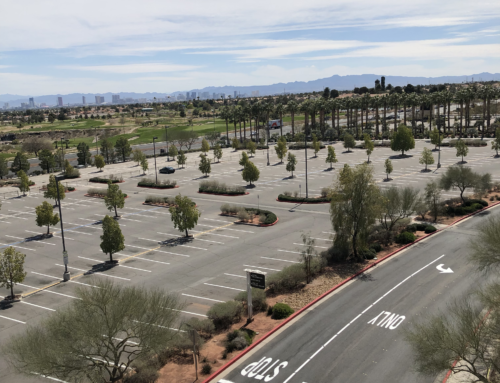Las Vegas is renowned for its unique climate, characterized by scorching temperatures and sparse, yet occasionally intense, rainfall. This extreme weather presents a significant challenge to the integrity and longevity of asphalt roads and pavements. Under the desert sun, asphalt can soften and deteriorate more quickly than in milder climates, leading to issues such as cracking, rutting, and fading. Moreover, the infrequent rainfalls can cause water to seep into existing cracks, exacerbating damage through erosion and the freeze-thaw cycle. In this environment, regular maintenance isn’t just beneficial—it’s essential for preserving the lifespan and safety of asphalt surfaces.
Recognizing the unique demands of Las Vegas’ climate on asphalt, Xtreme Asphalt emerges as a leading provider of asphalt maintenance solutions in the region. With a deep understanding of local conditions and a commitment to quality, Xtreme Asphalt offers specialized services designed to protect and extend the life of asphalt pavements. From routine inspections and crack sealing to comprehensive sealcoating and prompt repairs, our approach to maintenance ensures that Las Vegas’ roads and pavements remain in top condition, safeguarding the community and enhancing the city’s infrastructure resilience. At Xtreme Asphalt, we’re not just maintaining asphalt; we’re preserving the pathway to Las Vegas’ vibrant heart.
Understanding Las Vegas’ Climate and Its Effects on Asphalt
Las Vegas is enveloped in a climate that pushes the endurance of its infrastructure to the limits. Known for its hot temperatures, the city often experiences mercury levels that soar well beyond what is considered comfortable or normal in other regions. Summer temperatures in Las Vegas frequently eclipse 100 degrees Fahrenheit, subjecting asphalt pavements to intense heat for prolonged periods. This relentless exposure to high temperatures can cause the asphalt to soften and become more pliable than intended, making it susceptible to deformation under the weight of continuous traffic.
Additionally, while Las Vegas is predominantly dry, it is not immune to occasional intense rainfalls, especially during the monsoon season from July through September. These sudden downpours can lead to significant water accumulation on road surfaces, challenging the drainage capabilities of asphalt pavements. When water seeps into and beneath the asphalt through existing cracks or imperfections, it can erode the base materials, leading to further cracking, potholes, and in severe cases, structural failure of the pavement.
The combination of scorching heat and sporadic heavy rainfalls accelerates the wear and tear on asphalt surfaces in unique ways. Thermal expansion during hot days followed by contraction at cooler nights can lead to cracking, while UV radiation from prolonged sun exposure fades and weakens the asphalt’s top layer, reducing its resistance to further damage. Rutting, or the permanent deformation of the pavement surface, can occur in areas with slow-moving traffic or frequent stops, as the softened asphalt is more prone to being pushed and pulled into ridges and grooves.
These conditions underscore the critical need for regular and proactive maintenance of asphalt surfaces in Las Vegas. Without it, the rapid deterioration can compromise not just the aesthetics of the roads and pavements but, more importantly, their safety and functionality, leading to increased repair costs and potential hazards for the city’s residents and its millions of visitors.
The Science Behind Asphalt Degradation in Extreme Heat
The intense heat characteristic of Las Vegas doesn’t just test the resilience of its inhabitants and visitors; it also poses a significant challenge to the city’s asphalt pavements. Understanding the science behind asphalt degradation in extreme heat is crucial to developing effective maintenance and preservation strategies.
Asphalt, a composite material primarily made of aggregates, binder, and fillers, undergoes thermal expansion when exposed to high temperatures. This phenomenon is a physical property of matter that causes it to change in volume in response to changes in temperature. In the case of asphalt, the binder (often bitumen) softens in extreme heat, increasing the pavement’s flexibility and making it more susceptible to deformation under the pressure of vehicular traffic. This can lead to rutting, where tracks or grooves form on the surface, and shoving, which is the formation of ripples in the asphalt.
Prolonged exposure to high temperatures also accelerates the aging process of asphalt pavements. UV rays from direct sunlight break down the chemical bonds in the bitumen, leading to a loss of elasticity and an increase in brittleness. This process, known as oxidative aging, diminishes the asphalt’s ability to accommodate the thermal stresses caused by temperature fluctuations, resulting in cracking and increased susceptibility to water infiltration.
Moreover, the risk of damage from oil spots and chemical spills is exacerbated under high temperatures. Asphalt’s porous nature allows it to absorb these substances, which can soften and break down the bitumen binder even further. This not only weakens the pavement structure but also creates slick spots that pose safety hazards to vehicles.
Oil spots and chemical spills are particularly detrimental in parking lots and areas with slow-moving traffic, where the concentration of these substances can be higher. The softened asphalt around these spots can lead to potholes and other forms of surface distress, further compromising the pavement’s integrity and lifespan.
Given these challenges, it’s clear that regular maintenance and specialized treatments are vital for preserving asphalt pavements in Las Vegas. Techniques such as seal coating can protect against UV damage, while prompt cleaning of spills and careful monitoring for signs of thermal distress can help mitigate the effects of high temperatures and chemical exposures. Ultimately, understanding the science behind asphalt degradation is key to ensuring the durability and safety of Las Vegas’s roads and pavements in the face of extreme heat.
Key Maintenance Strategies for Asphalt in Las Vegas
In Las Vegas, where the climate subjects asphalt pavements to extreme conditions, adopting key maintenance strategies is essential for preserving their integrity and prolonging their service life. Implementing a regular maintenance program can mitigate the harsh effects of the environment and ensure that pavements remain safe and functional. Here are some critical maintenance strategies tailored for the unique challenges of Las Vegas:
Regular Inspection and Assessment
The foundation of effective asphalt maintenance lies in regular, professional evaluations. These inspections are crucial for identifying early signs of damage, such as minor cracks, surface wear, or early signs of rutting and depressions. Early detection allows for timely interventions that can prevent minor issues from escalating into major problems. Professionals equipped with the right tools and knowledge can assess the pavement’s condition, diagnose underlying issues, and recommend appropriate corrective actions. In Las Vegas, where heat and occasional heavy rains can accelerate pavement degradation, these inspections should be conducted more frequently to address the rapid wear and tear.
Crack Sealing
Crack sealing is a proactive maintenance measure that significantly extends the life of asphalt pavements. By filling cracks with a flexible sealant, water infiltration into the pavement structure and sub-base is prevented, which is crucial in preventing further degradation. Water is a primary enemy of asphalt, leading to erosion, pothole formation, and base destabilization. In Las Vegas, the dry climate can cause the asphalt to shrink and crack, making it vital to seal these cracks promptly to avoid water damage during rare but intense rainfalls.
Sealcoating
Sealcoating provides a protective layer on the asphalt surface, shielding it from the damaging effects of UV rays, oil spills, and water penetration. This maintenance technique also helps reduce the surface temperature of the asphalt by reflecting sunlight, which is particularly beneficial in Las Vegas’s hot climate. By protecting the asphalt binder from oxidation and deterioration, sealcoating effectively extends the pavement’s life and enhances its appearance. Typically, sealcoating is recommended every two to three years, depending on traffic volumes and exposure to extreme conditions.
Prompt Repairs
Addressing repair needs promptly is crucial in preventing larger, more costly problems down the line. This strategy is particularly important in Las Vegas, where the extreme heat can quickly exacerbate existing pavement issues. Prompt repairs can range from patching potholes to replacing sections of pavement that have failed. Acting quickly not only saves on future repair costs but also maintains the safety and aesthetics of the pavement, contributing to the overall appeal and functionality of the property.
Implementing these key maintenance strategies requires a knowledgeable and experienced asphalt maintenance provider. In Las Vegas, Xtreme Asphalt stands ready to deliver these essential services, leveraging their expertise to protect and maintain asphalt pavements against the harsh local climate. By adhering to a regular maintenance schedule and addressing issues promptly, Xtreme Asphalt helps ensure that Las Vegas’s roads and pavements remain in top condition, serving the community effectively and efficiently.
In the challenging climate of Las Vegas, with its extreme heat and occasional intense rainfalls, the importance of regular asphalt maintenance cannot be overstated. The longevity, safety, and visual appeal of asphalt pavements hinge significantly on a proactive approach to maintenance. Regular inspection and assessment, crack sealing, sealcoating, and prompt repairs are not just maintenance tasks; they are essential investments in the lifespan and functionality of the pavement. These strategies mitigate the harsh effects of the climate, preventing the rapid deterioration that can lead to costly repairs and safety hazards.
Xtreme Asphalt emerges as a beacon of reliability and expertise in this vital field. With a deep understanding of Las Vegas’s unique environmental challenges and a commitment to excellence, Xtreme Asphalt stands out as the premier choice for asphalt maintenance needs. The benefits of partnering with such a knowledgeable and experienced company are manifold, encompassing not only extended pavement life and enhanced safety but also improved property aesthetics and value.
Taking steps to maintain your asphalt pavement is crucial, and choosing the right partner for this journey is even more so. Xtreme Asphalt is equipped with the tools, knowledge, and experience to ensure your pavement withstands the test of time and the extremes of Las Vegas’s climate. From comprehensive evaluations to the implementation of tailored maintenance plans, Xtreme Asphalt is dedicated to preserving the integrity and safety of your pavement.
We encourage property owners and managers in Las Vegas to take action and protect their investment by reaching out to Xtreme Asphalt. Contact us today for an in-depth assessment or to discuss our maintenance services. Let us help you extend the life of your asphalt, ensuring it remains safe, functional, and aesthetically pleasing for years to come. With Xtreme Asphalt, you’re not just maintaining roads and pavements; you’re investing in the future of your property and the safety of all who use it.
